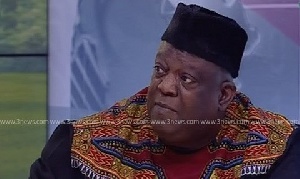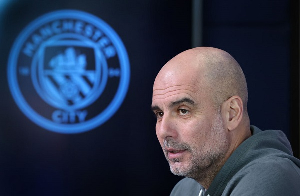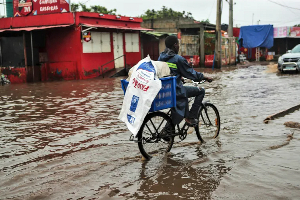Financial analyst Joe Jackson has suggested that the government of Ghana scrap the Communication Service Tax to ease the burden on Ghanaians during this trying time of coronavirus outbreak in the country.
According to him, it would be appropriate for the government to use part of the GHS1 billion allocated to the Coronavirus Alleviation Programme, to take the CST burden of the ordinary Ghanaian since mobile phones have become a very key tool in the midst of the pandemic.
“In this current regime of a lockdown, our biggest tool is our phone and yet the cost of making phone calls is still the same, there’s still a Communication Service Tax sitting in there.
“So, I’m suggesting that for this period, some of that fund, that money should be applied to removing the CST with respect to voice and data to the point where the vulnerable person, that informal person, that SME, that kayayei who were packed into the vehicle on the way to Walewale, they can feel an immediate impact”, Mr Jackson told Benjamin Akakpo on Class FM’s Executive Breakfast Show on Tuesday.
President Nana Akufo-Addo instituted the Coronavirus Alleviation Programme which is intended to lessen the economic burden on businesses and households as the virus ravages on.
In his fourth address to the nation on Friday night, through which he announced a partial shutdown of the Greater Accra and Greater Kumasi, as part of measures to contain the spread of the disease which has killed five people out of the one hundred fifty-two confirmed cases so far, the President said: “Fellow Ghanaians, we are in this together, and the government will stand by you”.
“We are aware that there will be discomfort and difficulties for all of us over the next couple of weeks. As a responsive government, we will continue to implement bold measures to mitigate the impact of the coronavirus on businesses and households and ensure that job losses are minimised.
“The Minister of Finance has been directed by me, to prepare, for approval by Parliament, a Coronavirus Alleviation Programme to address the disruption in economic activities, the hardship of our people, and to rescue and revitalise our industries. He will, then, immediately make available a minimum of one billion cedis (GHS1 billion) to households and businesses, particularly small and medium scale enterprises.
“The commercial banks are, in addition, responding to the Bank of Ghana’s 1.5% decrease in the Policy Rate and 2% in reserve requirement with a three billion-cedi (GHS3 billion) facility, to support industry especially in the pharmaceutical, hospitality, service and manufacturing sectors.
“We are providing additional relief, such as extension of the tax filing date from April to June; a two per cent (2%) reduction of interest rates by banks, effective 1st April, 2020; the granting by the banks of a six (6) month moratorium of principal repayments to entities in the airline and hospitality industries, i.e. hotels, restaurants, car rentals, food vendors, taxis, and uber operators. All other sector credit exposures will be reviewed on a case by case basis; mobile money users can send up to one hundred cedis (GHS100) for free; and a one hundred per cent (100%) to three hundred per cent (300%) increase in the daily transaction limits for mobile money transactions”, he said.
The President also said his government will bring the economy back on track post-coronavirus.
“Fellow Ghanaians, with the Bank of Ghana predicting a worst-case GDP growth rate scenario of 2.5% for 2020, should the virus continue to linger for the rest of the year, the effects on our economy would be dire. However, as we have demonstrated over the course of the last three years, where we inherited an economy that was growing at 3.4% and transformed it into one which has grown by an average of 7% over the last three (3) years, I assure you that we know what to do to bring back our economy back to life. What we do not know how to do is to bring people back to life”.
Business News of Tuesday, 31 March 2020
Source: classfmonline.com
Coronavirus: Remove talk tax – Joe Jackson
Entertainment












